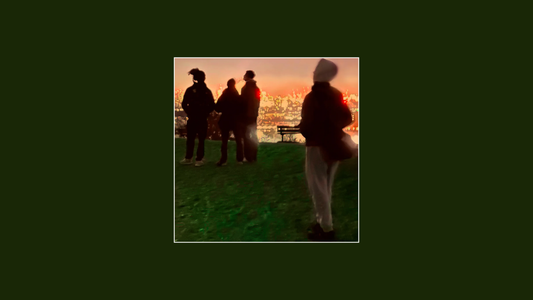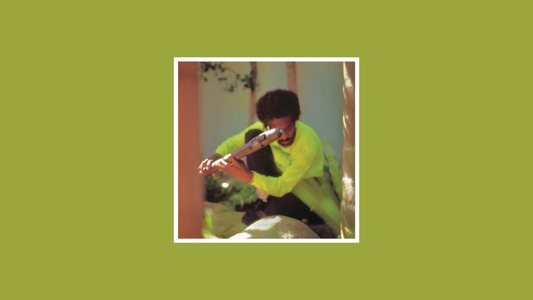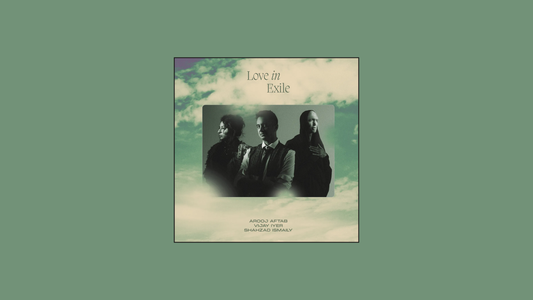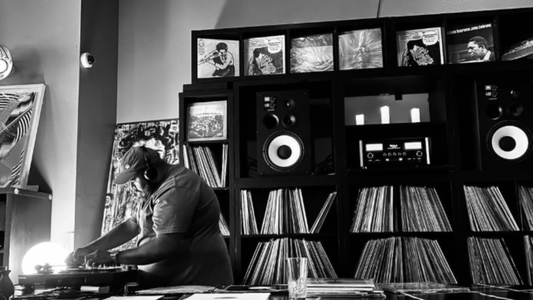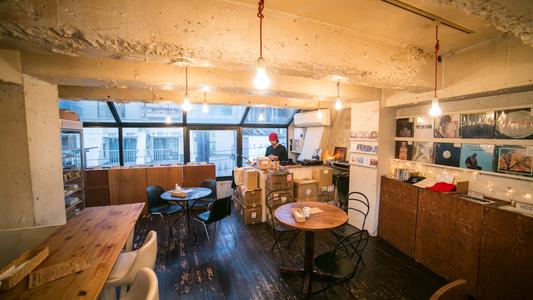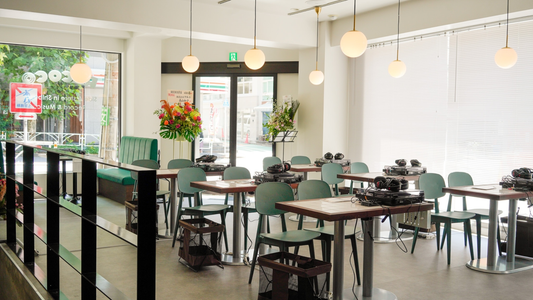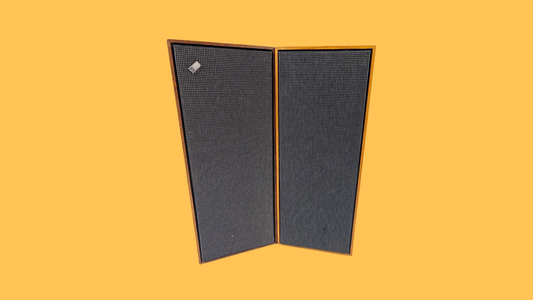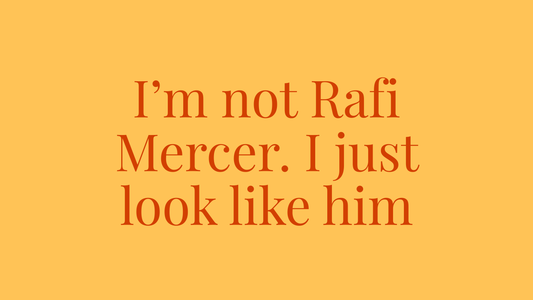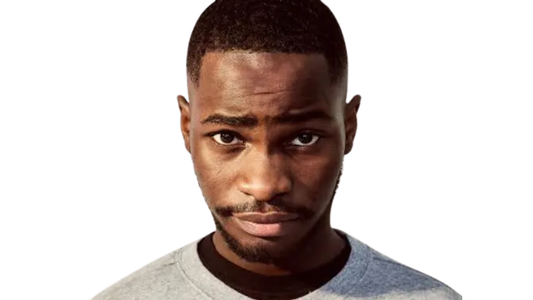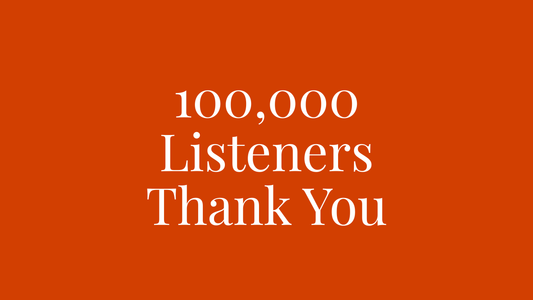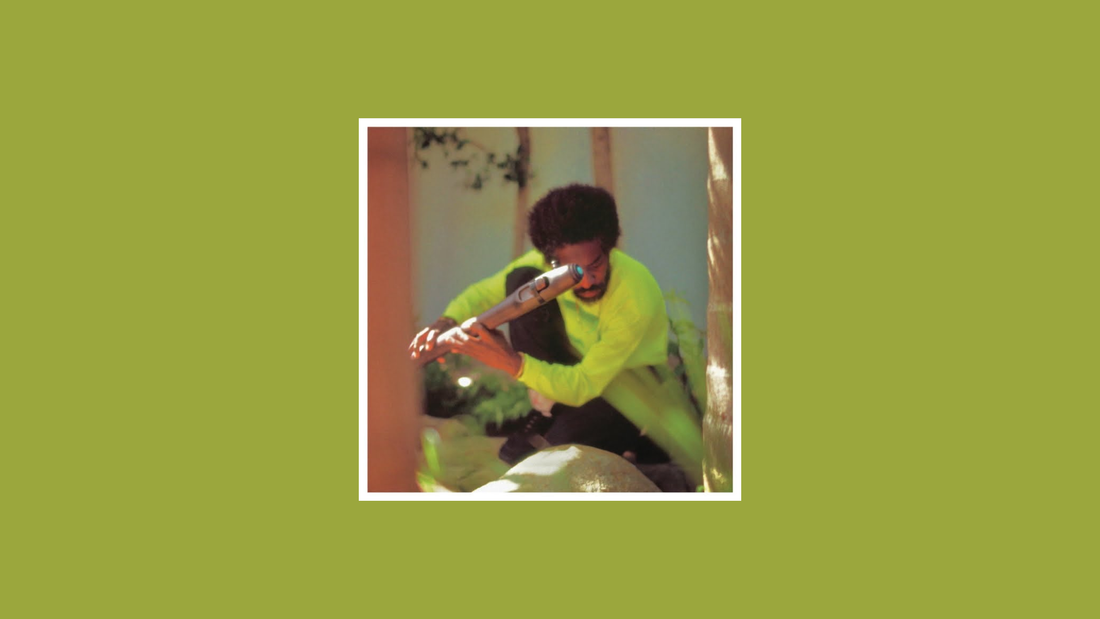
André 3000 – New Blue Sun (2023)
By Rafi Mercer
Some records are made for discovery; others are made for return. New Blue Sun, André 3000’s first solo album, feels like both — a homecoming disguised as departure. It’s not rap, not really jazz, not ambient either, yet somehow it holds all of them in suspension. What matters most is that it sounds extraordinary on a good system — the kind of record that makes you re-tune the room rather than reach for explanation.
The first tone you hear isn’t voice but breath — a flute note, unhurried, human. It hangs there, finding its own resonance, before being joined by hand percussion, subtle drones, small fragments of melody. That’s the template for the whole album: exploration through tone and air. There are no lyrics, no verses, no choruses — just improvisation that drifts like weather.
It’s easy to forget how radical that is. One of hip-hop’s most inventive lyricists releasing a wordless album — that’s not a stylistic swerve, it’s a re-centering. André 3000 isn’t escaping language; he’s listening beyond it. You sense that he’s been chasing silence, chasing space, chasing what happens when the noise stops.
Played through high-fidelity speakers, New Blue Sun is astonishing. You hear depth rather than volume — wooden flutes breathing against air, subtle panning of chimes, textures sliding like light across water. The detail is immense: you can almost feel the distance between the microphones and the walls. Each track carries warmth, but also curiosity, as if the musicians are discovering the sound at the same time you are.
The titles are playful — “I Swear, I Really Wanted to Make a ‘Rap’ Album but This Is Literally the Way the Wind Blew Me This Time” — but beneath the humour there’s sincerity. André isn’t trying to impress anyone. He’s simply showing where his ears have led him. It’s a reminder that listening doesn’t always move forward; sometimes it circles inward, toward breath and awareness.
There’s a lineage here: the meditative jazz of Alice Coltrane, the spacious electronics of Laraaji, the patient phrasing of Brian Eno. Yet New Blue Sun never sounds like imitation. It sounds lived-in — a record made by someone who’s seen every corner of sound and chosen to return to stillness.
What’s beautiful is how open it feels. You don’t need to understand jazz, ambient, or New Age to enter it. You just need to give it time. It works anywhere — on headphones, in a café, in a listening bar late at night when everyone’s talking softer. It’s an album that teaches you that listening can start from any direction: from curiosity, from fatigue, from silence, from joy.
And that’s the point, really. New Blue Sun reminds us that listening isn’t about genre or expertise — it’s about attention. Sometimes the truest sound comes not from words or beats, but from the space they leave behind.
When it ends, there’s no applause, no closure, just air returning to quiet. And maybe that’s enough.
Rafi Mercer writes about the spaces where music matters.
For more stories from Tracks & Tales, subscribe, or click here to read more.
